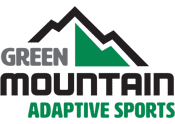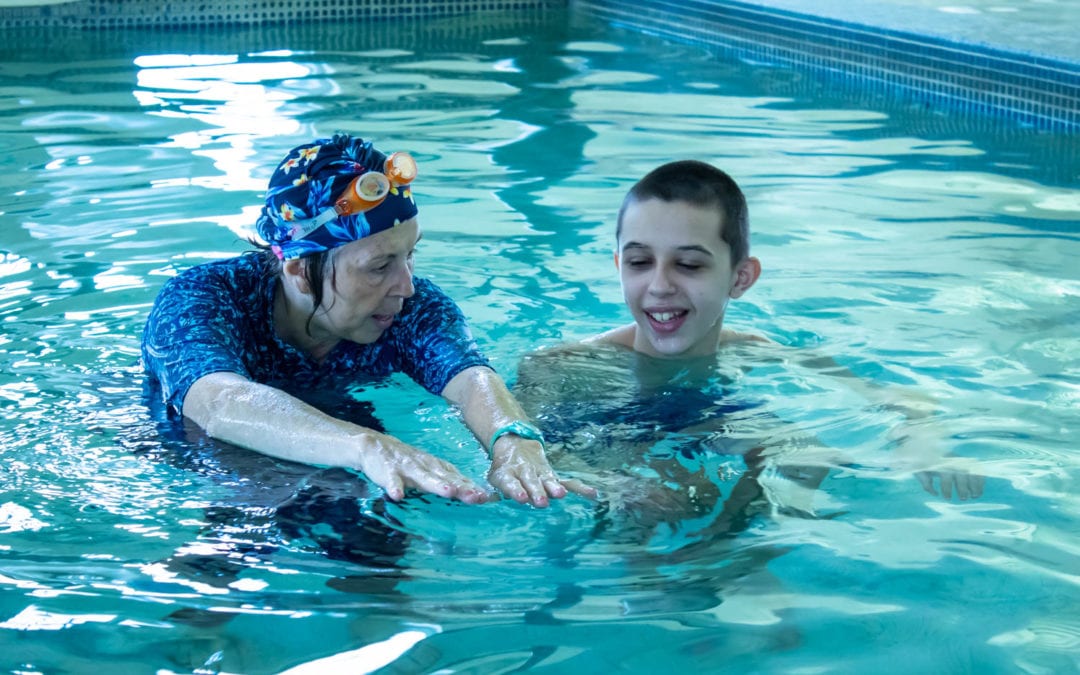Elaine Fortin, an aquatics coach at the Swimming Hole in Stowe, Vt was recently awarded a grant by Green Mountain Adaptive Sports to attend an adaptive coaches’ swim clinic with Dr. Monica Lepore in Atlanta. The clinic was a collaboration between the Starfish Aquatics Institute (SAI) program, the Diversity in Aquatics Adapted Aquatics Council, and Swim Life Fitness.
Providing grants to support advanced training to coaches working in adaptive programs is part of Green Mountain Adaptive Sports’ mission. We were thrilled to hear that the experience was a great success and extremely valuable. Now back and coaching in Vermont, Elaine is filled with renewed energy and fresh knowledge, and a new understanding of the needs of her aquatics students including GMAS’s adaptive athletes of all ages and abilities.
Here is a letter she sent to the GMAS board describing her experience and takeaways from the clinic.
Thank you for supporting me to attend the clinic on Adapted Aquatics in Atlanta. Dr. Monica Lepore presented three intensive days of instruction with in-pool activity on two days.
We had a guest swimmer, Rachel, a 40-year-old woman with cerebral palsy, who had been a university student of Monica’s 22 years ago and is now the director of a school for people with disabilities. Rachel taught us what cerebral palsy really is, and what happens to her body when she tries to manipulate her arms and legs. It was so valuable, to learn what it feels like when her body goes into the Moro reflex, that reflex we all have as babies, known as the ‘startle reflex’. People who don’t have cerebral palsy grow out of that reflex by about 18 months old. People with CP go through life, knowing their body can flip into that back arching position any time they hear a loud sound or something passes quickly across their peripheral vision. It was like being among angels, to watch my colleagues as we each took a turn working with Rachel.
Monica put us through several exercises where we encountered limitations to our bodies such as contractions, closed fists, and slow brain-motor responses. Nothing grows empathy more than living the restriction.
We had students with Down Syndrome, autism, and traumatic brain injury. Monica watched and coached us as we each interviewed, assessed, and taught two swimmers. Such hands-on practice is precious. Thank you for this rare and so special opportunity.
One detail I learned is that for people with many disabilities, the water temperature needs to be above 84 degrees. Their bodies can’t regulate in cooler water.
Attendees were university phys-ed teachers from Puerto Rico and Texas, staff from the Nashville Dolphins, an adapted aquatics company in Nashville with five locations, and the aquatics director for a city near Cleveland. One student had a disability herself. All of us were blessed with the passion to help people with challenges learn to swim.
There are many people with disabilities in Vermont. So few are being helped to swim. I look forward to working with GMAS to bring adapted aquatics clinics to all of Vermont and hope to be an integral part of the committee to make it happen.
To apply for a scholarship for swim classes click here. To donate to GMAS and help us continue to provide grants and scholarships, click here.

